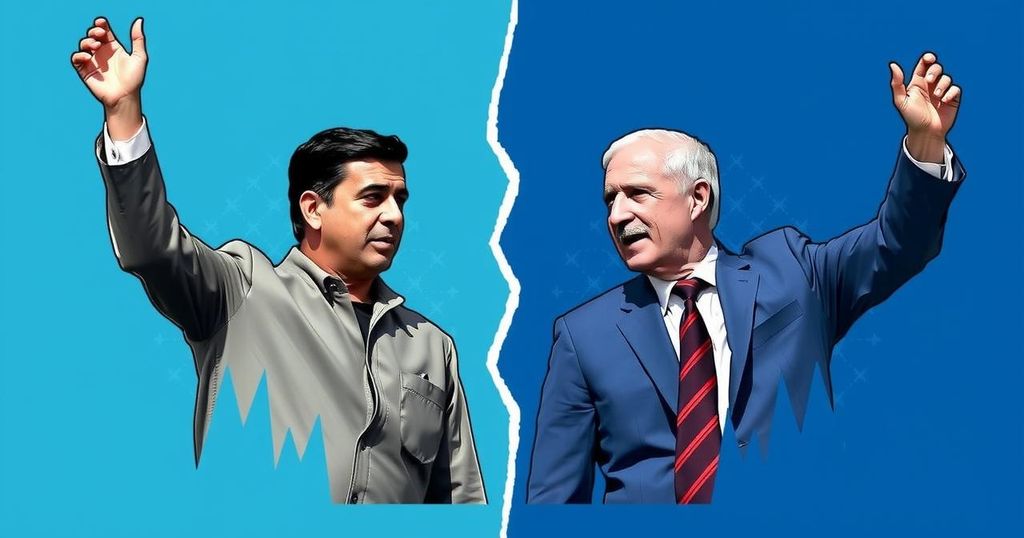Uruguay Faces Pivotal Presidential Runoff Election in 2024

The presidential runoff in Uruguay features Álvaro Delgado of the National Party against Yamandú Orsi from the Broad Front coalition. After a narrowly divided first-round vote, both candidates now engage in a tight race, addressing key issues such as crime and economic policy while appealing to uncertain voters.
Uruguay is set for a pivotal presidential runoff on Sunday, where voters will choose between Álvaro Delgado, the candidate for the ruling National Party, and Yamandú Orsi from the left-leaning Broad Front coalition. Following a competitive first round of elections on October 27, where Delgado secured 27% and Orsi 44% of the vote, the race now sees both candidates locked in a tight contest following the uneventful October vote which left Congress evenly divided.
Both candidates have faced challenges garnering enthusiastic support, appearing similarly moderate on key issues such as economic policy and social reforms. Uruguayan voters have been largely undecided, even with the backdrop of rising crime, an issue both candidates address in their campaigns.
Delgado, 55, capitalizes on the popularity of the current President Luis Lacalle Pou’s governance, dubbed a “referendum on good government,” while emphasizing continuity in market-friendly policies. Conversely, Orsi, 57, aims to invest in social reforms and stimulate sustainable agriculture through incentives, presenting himself as the voice of the working class.
This election reflects Uruguay’s unique political landscape, marked by relative stability and a lack of extreme partisanship, distinguishing it from the tumultuous elections seen in other countries. As both candidates rally their supporters, the outcome remains uncertain, raising the stakes in this closely watched election.
“This is a normal election, which is rare… It’s indicative of Uruguay’s strength as a democracy.” – Nicolás Saldías, Economist Intelligence Unit.
Uruguay is currently experiencing an intense electoral period, with a presidential runoff set to take place due to an inconclusive result from the first round of voting. Both candidates come from different ideological backgrounds, with Orsi representing the leftist coalition that governed for fifteen years until 2019, and Delgado from the conservative National Party. The political climate is charged by recent governance successes and socioeconomic challenges, particularly issues surrounding crime and social equity, as both candidates vie for the presidency amidst a backdrop of historic political stability.
In conclusion, Uruguay’s upcoming presidential runoff highlights a highly competitive atmosphere where two distinct visions for the nation’s future are at stake. With substantial voter indecision and a lack of extreme polarization, the election serves as a testament to Uruguay’s democratic resilience. As both candidates appeal to the electorate, their respective platforms present contrasting approaches to governance in a context where many voters remain apprehensive about the political landscape.
Original Source: apnews.com







